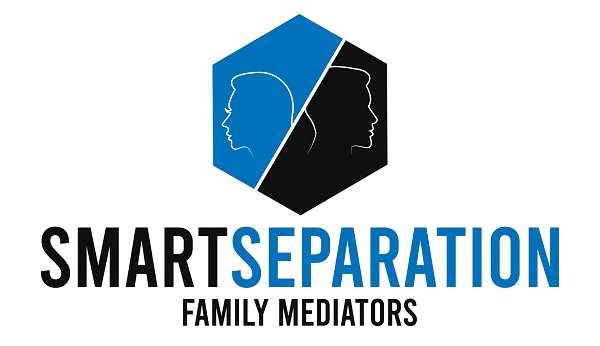What Toronto Family Mediators Can Do
A Toronto family mediator plays a vital role in helping families navigate separation and divorce with less conflict and more control over the outcome. While they are not judges or legal representatives, mediators have a range of responsibilities that support resolution outside the courtroom.
- Facilitate constructive communication between parties:
Mediators create a structured setting where each party can express their concerns respectfully. They manage the flow of conversation to reduce tension and promote understanding. - Help identify and clarify issues (e.g., parenting, support, property division):
A key part of mediation is helping clients recognize the full scope of their disputes. This often includes parenting time and decision-making, child and spousal support, division of assets, and living arrangements. - Guide clients toward mutually agreeable solutions:
Mediators do not decide for the parties but encourage cooperation and creative problem-solving. Their role is to keep discussions on track and ensure both voices are heard equally. - Draft a Memorandum of Understanding (MOU) outlining the agreement:
Once consensus is reached, the mediator summarizes the agreed terms in a written MOU. While this document is not legally binding on its own, it can be reviewed by lawyers and used to draft a formal separation agreement. - Offer a neutral and confidential environment:
Mediation is a voluntary and private process. Mediators in Toronto are trained to remain impartial and maintain confidentiality, creating a safe space for honest discussion.
What Toronto Family Mediators Can’t Do
While a Toronto family mediator plays a crucial role in supporting separating couples, it’s important to understand the limits of their role. Mediators are facilitators—not legal authorities or advocates—and there are specific things they are not permitted to do under Ontario law.
- Provide legal advice or represent either party:
Mediators must remain neutral at all times. They cannot give legal advice or tell either party what they should do. Instead, they may encourage both individuals to seek independent legal advice (ILA) before finalizing any agreement. - Make binding decisions like a judge:
Unlike a judge in family court, a mediator cannot impose a decision on either party. Mediation only works when both individuals voluntarily agree to the terms discussed. - Enforce agreements or court orders:
Mediators do not have the authority to enforce an agreement or ensure compliance with court orders. Once an agreement is reached through mediation, it must be formalized in writing—often as a separation agreement—and may be filed with the court to become legally binding. - Guarantee resolution or outcomes:
While many mediations in Toronto result in full or partial agreements, there is no guarantee that the process will be successful. Some couples may still need to proceed to court if consensus cannot be reached. - Act if there’s a clear conflict of interest or imbalance of power:
Ethical mediators in Ontario must decline or terminate the process if there is a conflict of interest, or if one party is unable to participate freely due to intimidation, fear, or coercion. Ensuring fairness and safety is a key responsibility of every accredited mediator.
When Mediation May Not Be Appropriate
While family mediation can be a valuable tool for resolving disputes amicably, there are certain situations where it may not be safe or effective. Toronto family mediators are trained to screen for these issues to ensure the process is appropriate and fair for both parties.
- History of domestic violence or abuse:
If there has been a pattern of intimate partner violence, coercion, or emotional abuse, mediation may not be suitable. In such cases, the mediator may halt the process or refer the parties to legal or protective services. - Severe power imbalances or unwillingness to cooperate:
Mediation relies on mutual participation and good faith. If one person dominates the conversation, refuses to compromise, or withholds important information, the mediator cannot ensure a fair outcome. A severe imbalance of power, whether emotional, financial, or intellectual, can make it impossible to reach a voluntary and informed agreement. - Complex legal or financial issues requiring court intervention:
Some family law matters involve complicated property division, hidden assets, or disputes over business interests that require judicial determination or forensic accounting. When issues are legally complex or one party refuses to disclose financial details, the matter may need to proceed through the Ontario family court system, where orders can be enforced.
Working with a Mediator and Lawyer Together
In Ontario, it’s common—and often recommended—for separating couples to use both a Toronto family mediator and a family lawyer to navigate their separation. These professionals play different but complementary roles in helping you resolve disputes while protecting your legal rights.
- How mediation and legal counsel can complement each other:
A mediator helps facilitate open, respectful dialogue and assists the parties in reaching a mutually agreeable resolution. A lawyer, on the other hand, provides individual legal advice, reviews proposed agreements, and ensures that your rights and obligations under Ontario law are fully understood before anything is finalized. Working with both can ensure the process is fair, informed, and legally sound. - When to involve your lawyer during or after mediation:
While some individuals consult their lawyer before beginning mediation, others prefer to involve them after a tentative agreement has been reached. Either approach is acceptable, but it’s essential to get independent legal advice (ILA) before signing any formal separation agreement. Your lawyer can also attend mediation sessions with you (in some cases) or provide guidance in the background while you work with the mediator. - Benefits of using mediation as a first step before court:
Mediation is typically faster, less expensive, and less adversarial than litigation. By starting with a Toronto family mediator, couples often reduce court time, legal fees, and emotional stress. Even if full agreement isn’t reached, mediation can help narrow the issues—making the eventual court process shorter and more focused.
As an experienced family and divorce mediator in Toronto, I often write blogs to provide insights, tips, and resources on family mediation and divorce in Ontario. Follow my blog to stay informed and empowered during challenging times.



